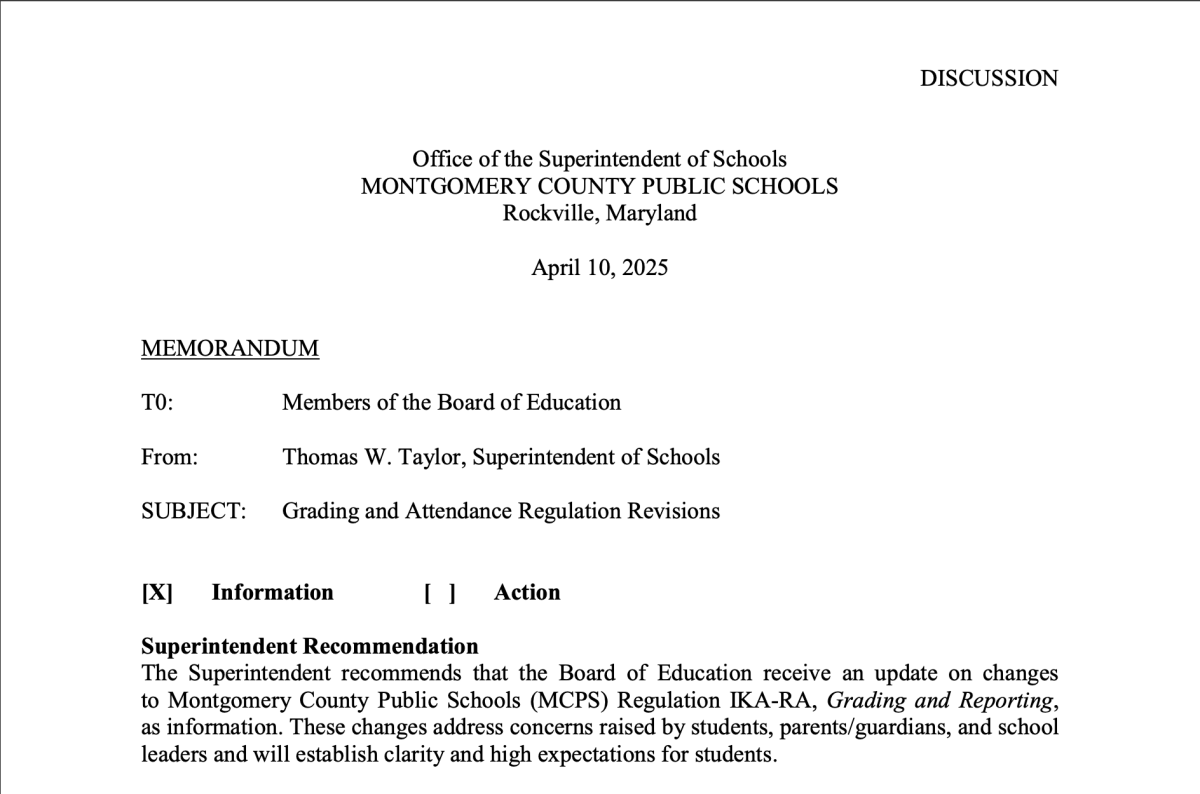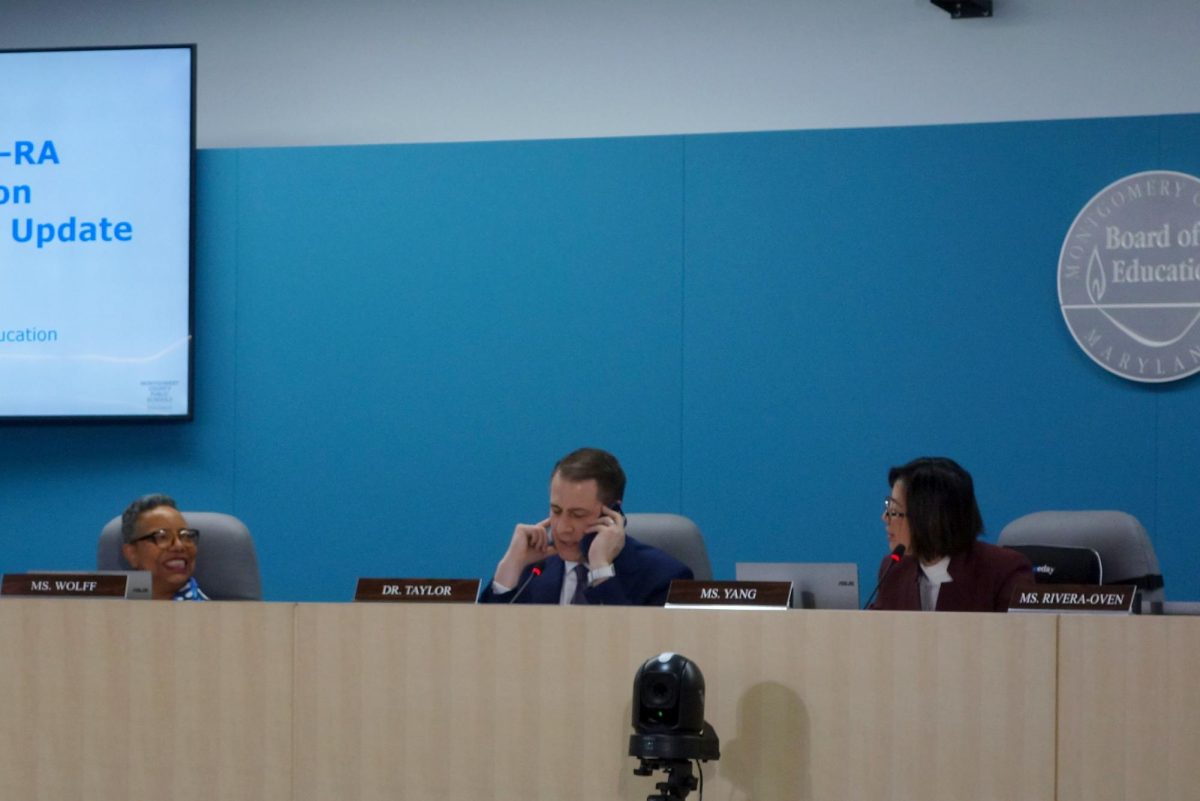Montgomery County Public Schools (MCPS) will overhaul its grading policy for the 2025-2026 school year, according to internal documents. Superintendent of Schools Thomas Taylor is set to present these proposed changes to the Board of Education at its regular business meeting this afternoon, April 10.
A memo from Taylor to the Board of Education and the accompanying slide presentation were posted to the Board of Education’s meeting management site BoardDocs early this week, which confirmed that MCPS will be making changes to its grading policy, known internally as Regulation IKA-RA, next school year. However, the specific changes the district will be making are not yet clear.
From the action items in the memo, the two biggest shifts in grading policy would come in changing the grade calculation policy and the return of some form of final exams.
Taylor’s memo announced that there would be a new final grade calculation system starting for ninth-grade students in the 2025-2026 school year. Since the 2016-2017 school year, MCPS has used a generous “quality point” average rounding system. In this system, an A (as low as 89.5%) in the first marking period of a semester combined with a B (as low as 79.5%) in the second marking period would average to an A.
Previously, under the “downward trend” system, the second of the two marking periods would be weighted slightly higher in semester grade calculations. Whether or not the district would return to the downward trend system or another system, like a numeric percent average system, which the district considered in 2017, was not clear, and the change would only apply to freshmen next year.
In addition to the grade calculation, Taylor’s memo also stated that MCPS would soon announce what he called “summative assessment requirements,” which would likely resemble a form of final exam or final project in many classes. Specifically, MCPS stated that by May, the curriculum team would announce further plans for these summative assessments in English, math, science and social studies classes.
Part of the reasoning behind the proposed summative assessments in Quarter 2 and Quarter 4 is a drop-off in attendance rates during these quarters. The introduction of Q2 and Q4 assessments, therefore, would “promote consistent student attendance throughout the semester” while allowing grades to truly reflect mastery of all content.
Other, more minor changes outlined in Taylor’s memo included establishing clearly defined windows for reassessments and making up late work, and defining what “minimal effort” means in the context of the 50% rule that mandates students can not receive less than a 50% on any assignment that they complete. One proposal that was floated in Taylor’s slides was adding a 10-day maximum for deadlines after the original due date.
Taylor also stated that the district would audit its honors-level classes to reduce variance, addressing the alleged problems of honors classes being encouraged or offered in order to boost students’ weighted GPAs. All of these changes to policy are also to be communicated to the community and staff by July.
When asked for comment and clarification, an MCPS official stated they could not confirm which of the changes outlined in the memo will definitely occur in the 2025-2026 school year, or how they would be specifically implemented, before the presentation to the Board.
Taylor will present these changes to the Board of Education this afternoon as an item of information. Because IKA-RA is an MCPS regulation and not a Board policy, changes are not subject to Board approval.
In aggregate, these changes would represent a seismic shift in MCPS’s grading policy. For years, members of the MCPS community, including students, have called for changes to the grading policy. Taylor, a 1996 graduate of MCPS, hopes that the changes will be a so-called “Return to Rigor.”









